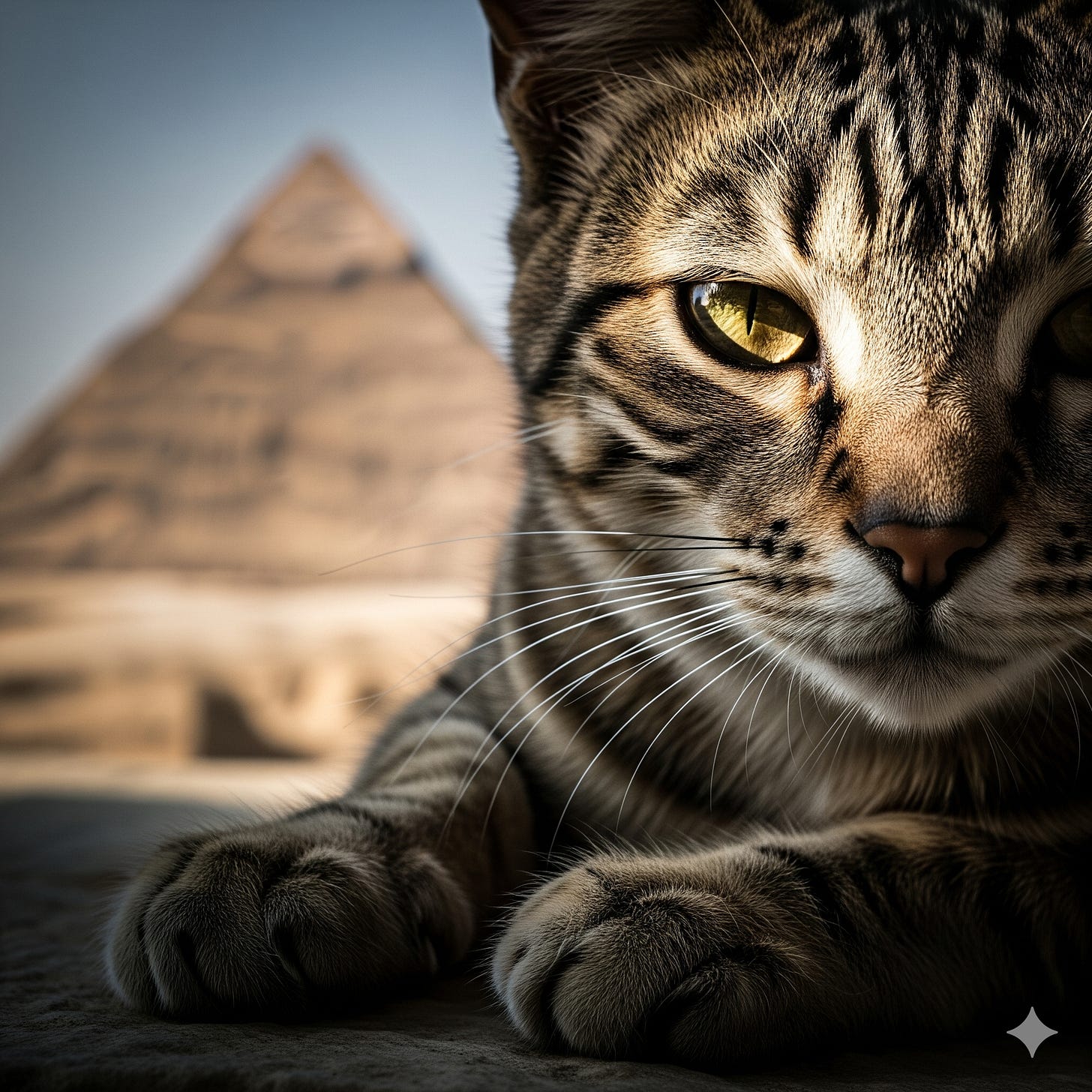Great Books Ep 110. Herodotus - The History - Book 2 (Euterpé), Part 2. Egypt and the Sacred Life of Animals
To the Egyptians, animals were not lower creatures, but vessels of divine power.
Photo by Gemini/nano-banana1
“They were also the first to broach the opinion that the soul of man is immortal, and that, when the body dies, it enters into the form of an animal which is born at the moment, thence passing on from one animal into another, until it has circled through the forms of all the creature…



